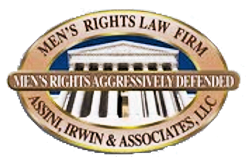A lot of men come to us after finding out the unfortunate news that the child they once believed to be their own, happens to be the biological child of another man.
 For these men, the newly discovered evidence is shocking and is likely grounds to file for a disestablishment action.
For these men, the newly discovered evidence is shocking and is likely grounds to file for a disestablishment action.
For other men, their suspicions have come true; however they had good reason to know this fact early on, and instead of taking the proper steps then, they held themselves out as the father. This act, and acts like it, could be detrimental to a disestablishment case.
So, your significant other is about to give birth to a bouncing baby boy or girl. And it is a happy time for all.
What do you do when it comes time to list a father’s name on the birth certificate?
If you really are unsure, then the answer is likely to wait.
If you’re not sure, then you should not hold yourself out as the father until you’re certain.
Paternity tests are quite simple and inexpensive and should give you the peace of mind before taking that next step. The reason why this is so important is because signing a consenting affidavit on the child’s birth certificate per Florida Statute 382.013(2)(c), creates the rebuttable presumption of paternity as provided in Florida Statute 742.10.
It then becomes challenging to unwind this assertion later on if you change your mind. If you sign the affidavit thinking that you are the father, only to find out newly discovered evidence later on that you’re not, then you may be one of the men mentioned in the first scenario above, and you should likely be ok in your pursuit of a disestablishment case.
But remember, in that case you should not wait to take action. The same goes for married couples. If a child is born during your marriage, there may be a presumption that the child is yours, depending on, among other things, whether your marriage was “intact.”
Either way, if you find out that you’re not the father, but continue to take steps to assert yourself as such, it could be very difficult to fix that issue and/or you could be stuck.
To take this a step further, as per Florida law, among other things, you would have to allege the following pursuant F.S. 742.18(2)(d-g):
- You have not adopted the child(ren)
- The child(ren) were not conceived by artificial insemination while the male ordered to pay child support and the child(ren)’s mother were in wedlock
- You have not acted to prevent the biological father from asserting his parental rights
- The child(ren) are younger than 18 years of age at the time the petition is filed
And per F.S. 742.18(3)(a-f):
- You have not engaged in any of the following conduct after learning that you are not the biological father of the child(ren):
- Married the mother of the child(ren)
- Acknowledged your paternity in a sworn statement
- Consented to be named as the biological father on the birth certificates
- Voluntarily promised in writing to support the child(ren)
- Disregarded an order or notice to submit to scientific testing
- Signed a voluntary acknowledgment as provided by F.S. 742.10(4)
If you, or someone you know is faced with a situation where they believe they may not be the biological father, and/or may be faced with legal proceedings regarding same, don’t hesitate, call Men’s Rights Law Firm today at 239-829-0166.

